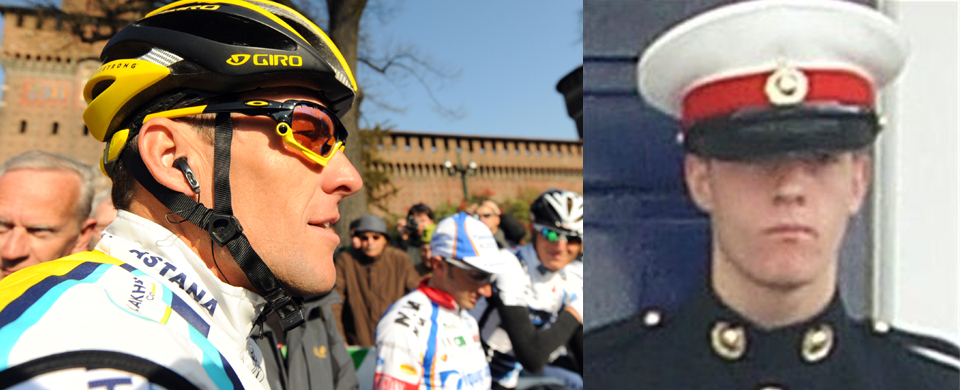Platform for Lance Armstrong insults families who have lost loved ones through steroid abuse
Yesterday, as the BBC was revealing plans to broadcast a 30-minute interview with Lance Armstrong, I received a reminder of the deadly reality of the culture the disgraced cyclist epitomises.
While reading Armstrong’s shameless admission that he’d take steroids again if their use was ‘totally pervasive’, an email landed in my inbox from Tina Dear, whose son Matthew died in 2009 after using the drug to ‘bulk up’ ready for joining the marines.
Tina, who set up a foundation in memory of their 17-year-old son with her husband Chris, was kind enough to write to me about Over The Line, saying: “Well done and good luck with your novel.”
“Please do publicise our website,” she continued. “Education is the key – and everybody needs to seriously start talking about this topic.”
Matthew bought steroids for £40 at a local gym from two men who even gave him a chart specifying how many to take each day.
Just three weeks later, he fell ill at his home in Southend, Essex and was taken to hospital. He admitted he’d taken steroids but was discharged the following day when he began feeling better.
That night, however, Matthew was in bed when he woke unable to see and with severe stomach cramps. His parents rang for an ambulance, but Matthew fell unconscious and had to be put on life support when he reached the hospital. He never came round.
The two men who supplied Matthew with the steroids were subsequently convicted of dealing and sentenced to 160 hours community service and a £300 fine each.
For Tina and Chris, it was an insultingly lenient punishment. But their main concern is to warn others of the consequences of using steroids.
On the website set up in memory of Matthew, they say: “We hope by letting people know that we have lost so much with the tragic death of our beautiful boy, which has scarred our family and will be with us for the rest of our lives, we will raise awareness of the dangers of these steroids and their potentially fatal consequences.”
The raw emotion of Matthew’s parents is a far cry from the slick PR of Lance Armstrong. In the thousands of words of transcript published by the BBC, the serial drugs cheat fails to warn of the health dangers of steroids and appears to blame everyone but himself for the gigantic fraud he committed.
The nearest he comes to an apology is the phrase: “I’m sorry we were all put in that position” – as if he had no choice but to cheat because, he claims, everyone else was doing it.
But the more serious omission in Armstrong’s bid to appear a reformed man – the stereotypical flawed hero – is the lack of any attempt to use his global notoriety to mount a campaign to discourage teenage boys, desperate to look super-muscular, from risking everything by taking steroids.
Why the BBC would give someone so discredited so much air time is beyond me. I’m sure the Dear family would welcome a fraction of that attention for their heartfelt campaign.
Steve Howell, Author, Over The Line
Photo Copyright: miqu77 /Shutterstock.com

